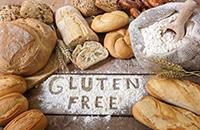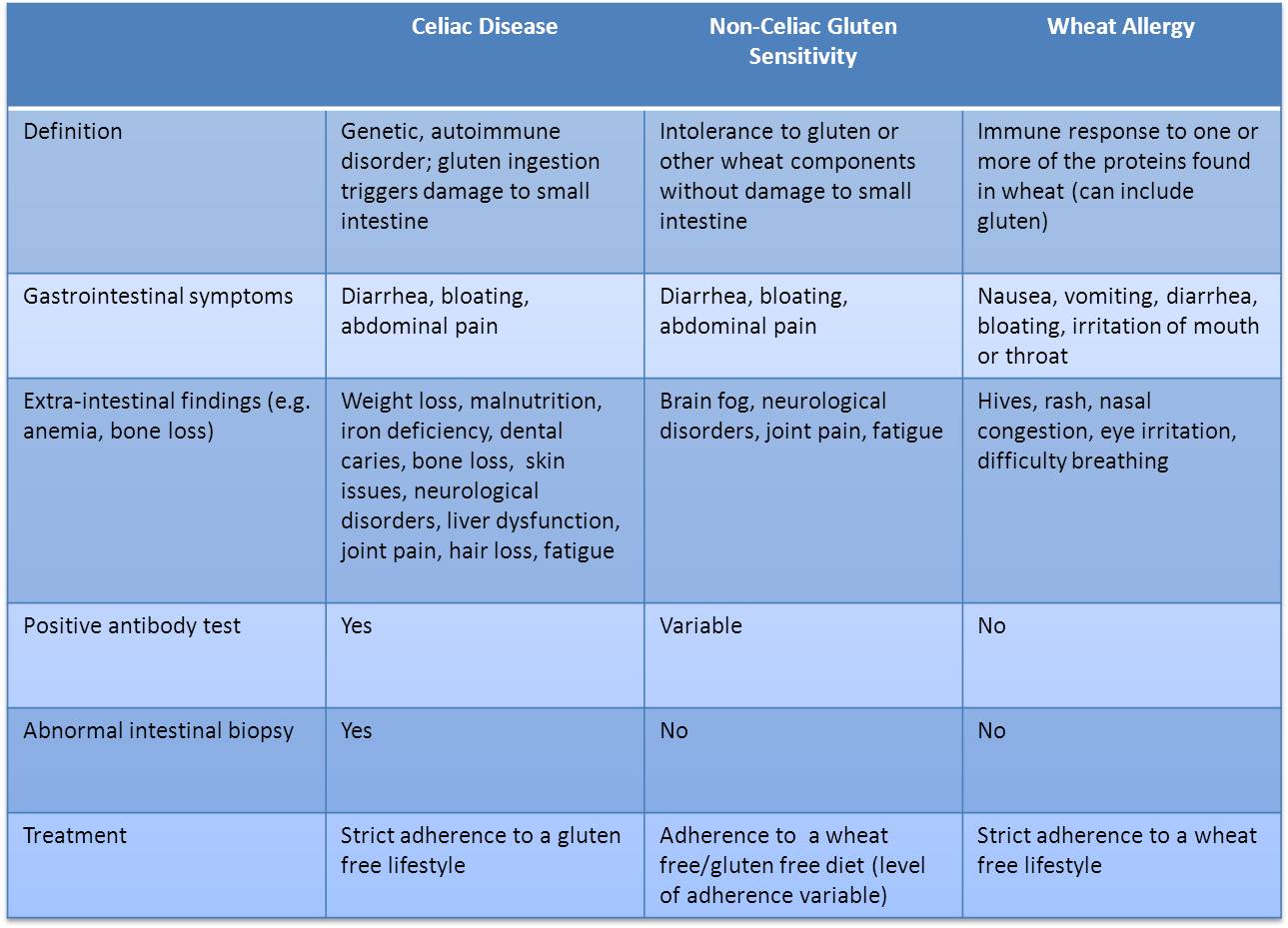
Or is it sometimes the fall guy for other allergens? Dietitian Ujjwala Baxi tells you what to do if you think you are gluten-sensitive. First tip: Do not rush into a gluten-free diet plan.
I first heard about gluten sensitivity during my college days when I was studying nutrition. During my year of internship in a 1,000-bed government hospital in India, I heard of only 3 gluten sensitive cases that were referred to the dietary department for a specific meal plan. This was 10 years back. Now, in my private practice, I meet many individuals who have been following or want to follow gluten-free diets. The numbers definitely seem to have gone up.
But is gluten always the trouble-maker?
Firstly, you should be aware that the result of eating a completely gluten-free diet is multi-nutrients deficiencies.
We hear of many more cases of food intolerance now, and we should be aware that it’s not always gluten that’s the bad guy. We are exposed to myriads of processed foods and additives in the food we eat. Some of the following food additives can cause similar reactions in the body as gluten:
- Nitrates in processed meats are known to cause itching and skin rashes
- The most commonly used MSG (monosodium glutamate) can lead to reactions from headaches to nausea, which subside on avoiding MSG rich foods.
- Sulfites commonly used in wines. A German study found that about 7% of people have an intolerance to wine.
Some foods, such as fish that have not been stored properly, can have an accumulation of histamine as they "rot". Many people are particularly sensitive to this naturally occurring histamine and develop skin rashes, abdominal cramps, diarrhoea, vomiting and nausea. Often, the symptoms are similar to anaphylaxis (a strong allergic reaction).
So, what is gluten?
Gluten is a type of protein present in wheat, oats, barley and rye. Most of our daily diets contain gluten in the form of breads, pasta, biscuits, cookies, noodles, cakes, pastries, tempuras, fritters etc. It is widely used by the food industry as a thickener in sauces, too. A very good example is soya sauce.
What is the difference between gluten sensitivity, celiac disease and wheat allergy?
Celiac disease is a serious illness in which the body’s immune system attacks itself when gluten is eaten. This causes damage to the lining of the gut and this means that the body cannot properly absorb nutrients from food. Celiac disease is not a food allergy or intolerance, it is an autoimmune disease. Read more on Celiac Disease
Food allergies are caused by a specific, reproducible immune response to a particular structural aspect of a "problem food". Food allergies most commonly are caused by allergic antibodies (IgE) to the food(s) in question.
The following table will help you understand the difference between celiac disease, non-celiac gluten sensitivity (NCGS) and wheat allergy.

Table Source: https://gastro.ucla.edu/site.cfm?id=281
You think you may be non-celiac gluten sensitive. What should you do?
Firstly, do not rush on to a gluten-free diet. If you are experiencing symptoms when eating foods that contain wheat, barley and rye and think you have a sensitivity to gluten, it’s important to first rule out celiac disease.
In order to do that, continue to eat gluten and see your GP as soon as possible. He will recommend some tests (blood test and biopsy) for celiac disease. It’s essential to keep eating gluten in order for the tests to be accurate. Remember, in order to be tested for celiac disease YOU MUST BE EATING GLUTEN!
Once you confirm that you do not have celiac disease, and other causes of your symptoms have been ruled out, you can discuss the possibility of non-celiac gluten sensitivity with your doctor.
Non-celiac gluten sensitivity is diagnosed by process of exclusion. Experts recommend that you first get tested for a wheat allergy and for celiac disease. If both of those are negative, then your doctor may recommend a gluten elimination diet. If symptoms improve on a gluten-free diet, then you likely have non-celiac gluten sensitivity.
It is very important that a knowledgeable physician oversee this entire process, which can help to stop patients self-diagnosing themselves and to reduce the likelihood of a placebo effect occurring during dietary intervention.
You are not sure if you are gluten intolerant. Is there anything else you could do instead of just cutting out all gluten from your diet?
If you have some symptoms, then you can consider eating sprouted grains containing gluten. Sprouting helps to increase the digestibility of gluten. The sprouted and fermented dough can be eaten in the form of pancakes, cakes, cookies, breads or steamed dumplings like idlis made with oats. These are easy on the digestive tract and loaded with nutrients that support gut health. This simple step may significantly relieve your discomfort.
If not gluten intolerance, what else could be causing your symptoms?
You need to rule out other foods like dairy, eggs, peanuts, walnuts, shell fish, soy, dairy, which are a few of the other things that can cause similar allergic reactions like gluten.
For instance, fresh salmon, tuna or halibut can cause severe allergies. If you’re allergic to one type of fish, you may react to others, too. Be careful if you love Thai and Chinese food. Many of these restaurants flavour dishes with fish sauce. Also beware of Caesar dressing and Worcestershire sauce. They have anchovies in them.
What are the side effects of following a gluten-free diet?
A gluten-free diet makes you stay off traditional bread, pasta, sauces and eat non-wheat, non-oat barley and rye versions instead. These grains provide us with essential B complex vitamins and dietary fibre. Most of the non-wheat pasta and breads are not fortified with these vital nutrients, so there may be a risk of deficiency. In some cases, supplementation may become essential if the diet lacks B complex vitamins. Also, to ensure your diet is healthy, you may need to consume more fruits and vegetables or natural fibre sources like psyllium husk.
Can a gluten-free diet help kids with autism?
The verdict is not out yet as there are conflicting researches on the efficacy of GFCF (Gluten-free casein-free) diets in autism.
However as an advisory, first, when parents decide to try a casein-gluten-free diet for their child with autism, I strongly urge them to consult a nutritionist or dietitian. Although it’s easy to find casein-gluten-free dietary plans on the Internet, few parents - or physicians - have the experience and knowledge to determine whether a child’s diet is providing all the necessary requirements for normal growth and development. Keep in mind that foods containing gluten and casein are major sources of protein as well as essential vitamins and minerals such as vitamin D, calcium and zinc.
So what’s the verdict?
If you feel that you may be allergic to gluten, it is important for you to be aware of when your symptoms strike. Instead of blaming gluten right away, think of any new foods you may have introduced in your diet that day. Is there a pattern in your symptoms – some familiar food that you eat without thinking that could be the cause of your problem?
However, if you experience regular gastric issues and reactions while following a gluten-rich diet, consult a doctor. The idea is to take wise steps rather than unnecessarily joining the gluten-free bandwagon!
References
https://gastro.ucla.edu/site.cfm?id=281
Nutr Neurosci. 2012 Mar;15(2):85-91. doi: 10.1179/1476830512Y.0000000003.
Effectiveness of the gluten-free, casein-free diet for children diagnosed with autism spectrum disorder: based on parental report.
https://www.celiaccentral.org/non-celiac-gluten-sensitivity/testing-and-diagnosis/






